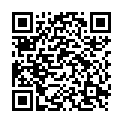|
|
|
| Module code: E204 |
|
|
2P (2 hours per week) |
|
3 |
| Semester: 2 |
| Mandatory course: yes |
Language of instruction:
German |
Assessment:
Assessed lab reports
[updated 10.03.2010]
|
E204 (P211-0014) Electrical Engineering, Bachelor, ASPO 01.10.2005
, semester 2, mandatory course
|
30 class hours (= 22.5 clock hours) over a 15-week period.
The total student study time is 90 hours (equivalent to 3 ECTS credits).
There are therefore 67.5 hours available for class preparation and follow-up work and exam preparation.
|
Recommended prerequisites (modules):
E104 Fundamentals of Electrical Engineering I
[updated 10.03.2010]
|
Recommended as prerequisite for:
E406 Power Electronics I
E408 Industrial Control Technology
[updated 10.03.2010]
|
Module coordinator:
Prof. Dr. Alexander Neidenoff |
Lecturer:
Prof. Dr. Alexander Neidenoff
[updated 10.03.2010]
|
Learning outcomes:
By developing an understanding of how practical measurements are conducted, students will be equipped to systematically study the underlying theory and to appreciate how the various aspects of the subject relate to one another. The methods learned in this module provide a solid foundation for students taking the advanced modules: ‘Electrical Engineering Theory’, ‘Electronics’ and ‘Measurement and Instrumentation Engineering II’. The skills and techniques acquired in this course will enable students to successfully complete project work and laboratory courses such as those in Electronics and in Automation Engineering. One of the key areas dealt with in this module is remote measurement using data bus systems.
[updated 10.03.2010]
|
Module content:
An introduction to automated measuring equipment and systems is held at the start of the second semester
Laboratory course units
The lab course units are subject to continuous revision. The units currently offered are:
B1: IEC Bus – Introduction to digital data transmission using an IEC bus as model system. Measuring the logic levels on individual bus lines; identifying the logical linking of bus line states. Coordination of data transmission as exemplified by the simple two-way communication between the PC and a frequency counter.
B9: Automated data transfer between a PC and a measuring instrument and from a PC to a PC. Byte-wise monitoring of the data stream on a simulator. Coordination of data transfer between addressable stations. Serial and parallel polling of bus devices.
L2 Introduction to logic analysers and their operating principles – Measuring gate delays, recognizing and testing different trigger options, such as signal level or bit pattern triggering. Testing a D/A converter using the special trigger functions of a logic analyser in conjunction with a digital storage oscilloscope.
A3: Antennas – Measuring the current distribution in an antenna. Measuring the horizontal and vertical directional characteristics of an antenna. Determining the gain of an antenna array.
V3: Detection and localization of cable defects using a variety of techniques – Wheatstone bridge method and signal and pulse propagation time techniques.
[updated 10.03.2010]
|
Teaching methods/Media:
Class teaching during the introductory sessions, lab instructions, lecture notes
[updated 10.03.2010]
|
Recommended or required reading:
Becker, Wolf / Bonfig, K.W / Hölng, Klaus: Handbuch Elektrische Messtechnik. Hüthig ISBN 3-7785-2769-X, 957 pages, €76
Felderhoff, Rainer / Freyer Ulrich / Mettke, Manfred: Elektrische und elektronische Messtechnik, Hanser Verlag ISBN 3-446-19227-1, 418 pages, €29.90
Lerch, Reinhard: Elektrische Messtechnik Springer-Lehrbuch ISBN 3-540-21870-X, 559 pages, €39.95
Mühl, Thomas. Einführung in die elektrische Messtechnik. Teubner ISBN 3-8351-0094-7, 278 pages, €29.90
Pfeiffer, Wolfgang. Elektrische Messtechnik. VDE ISBN 3-8007-2316-6, 352 pages, €26.60
Other textbooks and workbooks (library stock):
Cooper, William; Helfrich, Albert: Elektrische Messtechnik Informationstechnologie ISBN 3-527-26623-2
Haug, Albert; Haug, Franz: Angewandte Elektrische Messtechnik Vieweg ISBN 3-528-14567-6
Hoffmann, Jörg (Herausgeber): Taschenbuch der Messtechnik. Fachbuchverlag ISBN 3-446-18834-7, 635 pages
Schrüfer, Elmar: Elektrische Messtechnik Studienbücher der technischen Wissenschaften ISBN 3-446-17955-0
Schwetlick: PC-Messtechnik ISBN 3-528-04948, paperback, 408 pages
Stöckl, Melchior; Winterling, Karl H: Elektrische Messtechnik ISBN 3-519-46405-5
Lecture notes:
Neidenoff, Alexander: Praktikum Elektrische Messtechnik, 1. Teil [Measurement and Instrumentation Engineering Lab Course – Part 1], approx. 240 pages
Neidenoff, Alexander: Einführung in den IEC-Bus [Introduction to the IEC bus], 48 pages
[updated 10.03.2010]
|


